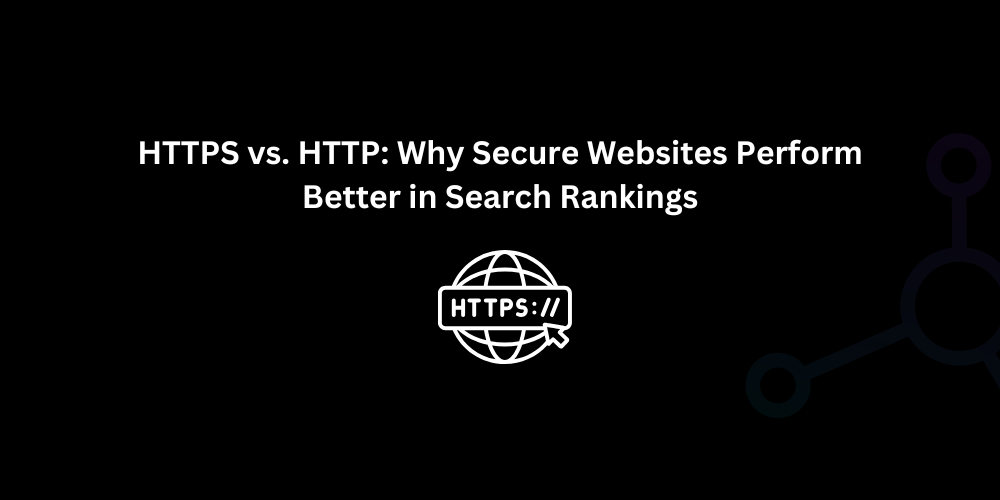
Introduction
Nowadays, website security is not just an optional feature; it is essential. One critical aspect of website security is the use of HTTPS instead of HTTP. If you’re aiming to improve your search rankings and provide a trustworthy experience for your visitors, transitioning to HTTPS is a must. In this blog, we’ll explore the differences between HTTPS and HTTP, why HTTPS impacts search rankings, and how Techno Digital can assist with all your technical and advanced SEO needs.
What Is HTTP and HTTPS?
- HTTP (HyperText Transfer Protocol): This is the traditional protocol used to transfer data between a web server and a browser. However, it’s not secure, as the data is transmitted in plain text, making it vulnerable to interception.
- HTTPS (HyperText Transfer Protocol Secure): HTTPS is the secure version of HTTP. It uses encryption protocols like SSL (Secure Sockets Layer) or TLS (Transport Layer Security) to ensure that data exchanged between a browser and a server is encrypted and secure from prying eyes.
Why HTTPS Matters for Search Rankings
Google values user experience and security. Here’s how HTTPS influences your website’s SEO:
- Improved Security HTTPS encrypts the data transmitted between users and your website, protecting sensitive information like passwords and credit card details. Secure websites build user trust, leading to longer visits and higher engagement rates—metrics Google rewards.
- Boosted Search Rankings Since 2014, Google has used HTTPS as a ranking signal. Websites with HTTPS tend to rank higher than their HTTP counterparts because security is a priority for both users and search engines.
- Avoiding the “Not Secure” Warning Browsers like Google Chrome label HTTP websites as “Not Secure,” which can deter visitors. A secure HTTPS site avoids this warning, creating a more professional and trustworthy impression.
- Faster Loading Speeds HTTPS websites often benefit from HTTP/2, a protocol designed to enhance website performance. Faster loading speeds improve user experience and contribute to better search rankings.
- Enhanced Referral Data HTTPS ensures accurate referral data in analytics, giving you better insights into your traffic sources—a crucial aspect of optimizing your marketing strategies.
How to Transition from HTTP to HTTPS
Switching from HTTP to HTTPS involves a few technical steps. Here’s a simplified guide:
- Purchase an SSL Certificate: Obtain an SSL certificate from a trusted provider.
- Install the SSL Certificate: Configure the certificate on your web server.
- Update Internal Links: Change all internal links from HTTP to HTTPS.
- Redirect URLs: Set up 301 redirects to ensure old HTTP URLs point to the new HTTPS versions.
- Update External Links: Notify partners and collaborators to update any external links pointing to your website.
- Verify HTTPS in Google Search Console: Add the HTTPS version of your site to Google Search Console to track performance.
How Techno Digital Can Help
At Techno Digital, we specialize in technical and advanced SEO, including HTTPS implementation. Our team ensures a smooth and secure transition from HTTP to HTTPS without compromising your search rankings. We provide end-to-end support, including SSL installation, redirect management, and performance monitoring.
Conclusion
Switching to HTTPS is more than just a security upgrade; it’s an investment in your website’s SEO, user trust, and overall performance. By prioritizing security, you’re not only protecting your visitors but also signaling to search engines that your website is credible and user-friendly.
Ready to upgrade your website’s security and SEO? Contact Techno Digital today for expert guidance on HTTPS implementation and all your technical SEO needs.





